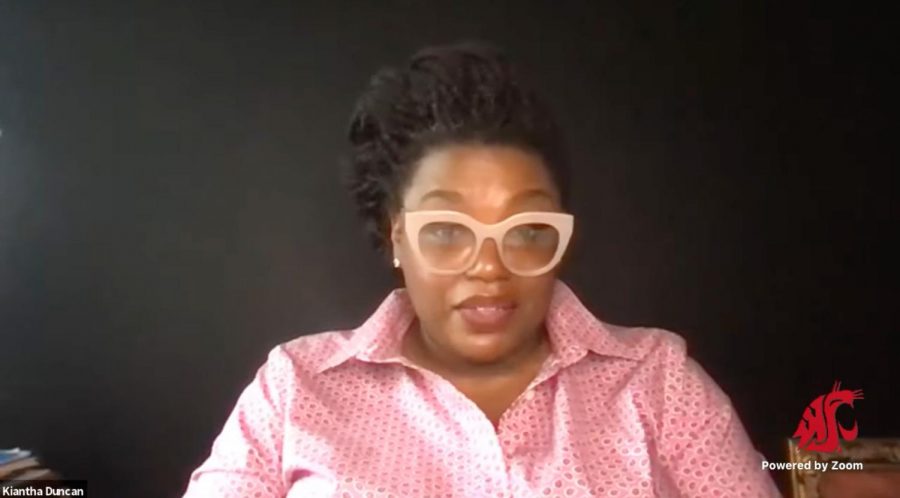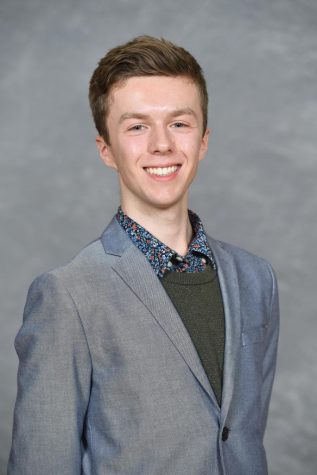Spokane NAACP president addresses poverty in communities of color
President of Spokane National Association for the Advancement of Colored People shared experiences growing up in midwest
Spokane NAACP President Kiantha Duncan shared her experiences living in Milwaukee, Wisconsin, during a Foley Institute talk Tuesday afternoon.
November 11, 2021
Spokane NAACP President Kiantha Duncan spoke about the politics of poverty in communities of color Tuesday afternoon at the latest Thomas S. Foley Institute event.
The Time’s Up and Black Lives Matter movements, as well as the pandemic, highlighted many forms of racial, economic, gender and geographic inequalities, said Foley Institute Director Cornell Clayton.
Duncan shared her experiences growing up in poverty in Milwaukee, Wisconsin, which is one of the most segregated cities in the U.S. For a long time, it was the second most segregated, she said.
She said every person around her was Black when she was growing up. The mail carriers, delivery drivers, friends and neighbors were all Black.
People in positions of power or authority were not Black. Police officers, teachers and case managers were all white, Duncan said.
She said some of her most memorable experiences living in poverty as a child come from school. In one instance, her class took a field trip to a museum and asked that students bring lunches packed from home. Duncan’s family did not have enough money to make her lunch, so the school packed her a sandwich, orange and milk.
There are millions of children across the country also living in food insecurity and experiencing similar situations to hers, Duncan said.
The annual book fair at her school was another reminder of her family’s economic situation. Duncan said she remembered feeling sad every year when she received the catalog for the fair.
“I knew there was a possibility and a probability that I would not be able to buy books because my family could not afford that,” she said.
It took Duncan a long time to realize her family lived in poverty because of segregation in Milwaukee. Many people and families in her environment were in the exact same situation, she said.
“Poverty has a way of excluding — excluding — people of color, excluding us from everyday needs,” Duncan said.
No area is unaffected by poverty. Impoverished communities of color are stripped of their ability to gain employment and wealth because they do not have access to the same resources as those that are financially successful, she said.
Policy change must happen in every area to make real strides in eliminating poverty. The change is like spokes on a wheel, Duncan said. For there to be change in the welfare system, there also needs to be change in educational access and workforce access.
Duncan said the experience living as a person of color in Eastern Washington is different compared to Milwaukee. Many people in Eastern Washington are still unwilling to hear there are racial disparities and that racism still exists.
She said this gives her an opportunity to listen and empathize then share her perspectives and realities with people who do not experience the same things as her.
In Spokane and Washington state as a whole, there are still advancements to be made in police reform, Duncan said. In Spokane, many people feel they need to defend the police, while others feel there are changes that can be made.
There are people in leadership and law enforcement who understand there is work to be done, she said.
Joe Soss, University of Minnesota political science and sociology professor, is the speaker for the Foley Institute’s next event, “Preying on the poor, criminal justice as a revenue racket.” Soss speaks at noon on Nov. 17 over Zoom and YouTube Live.


















